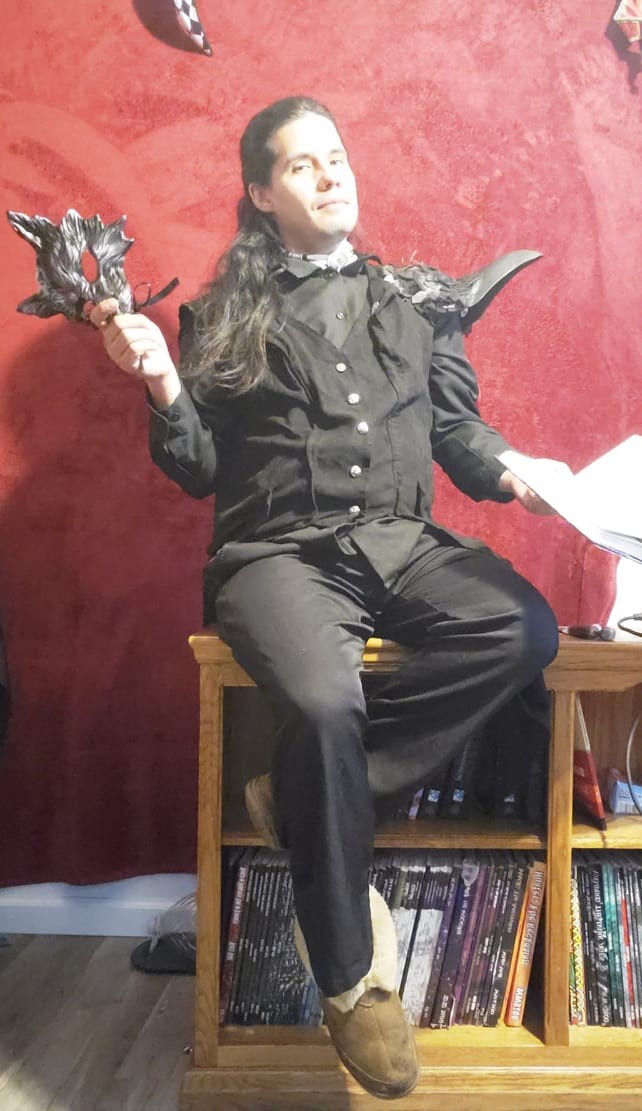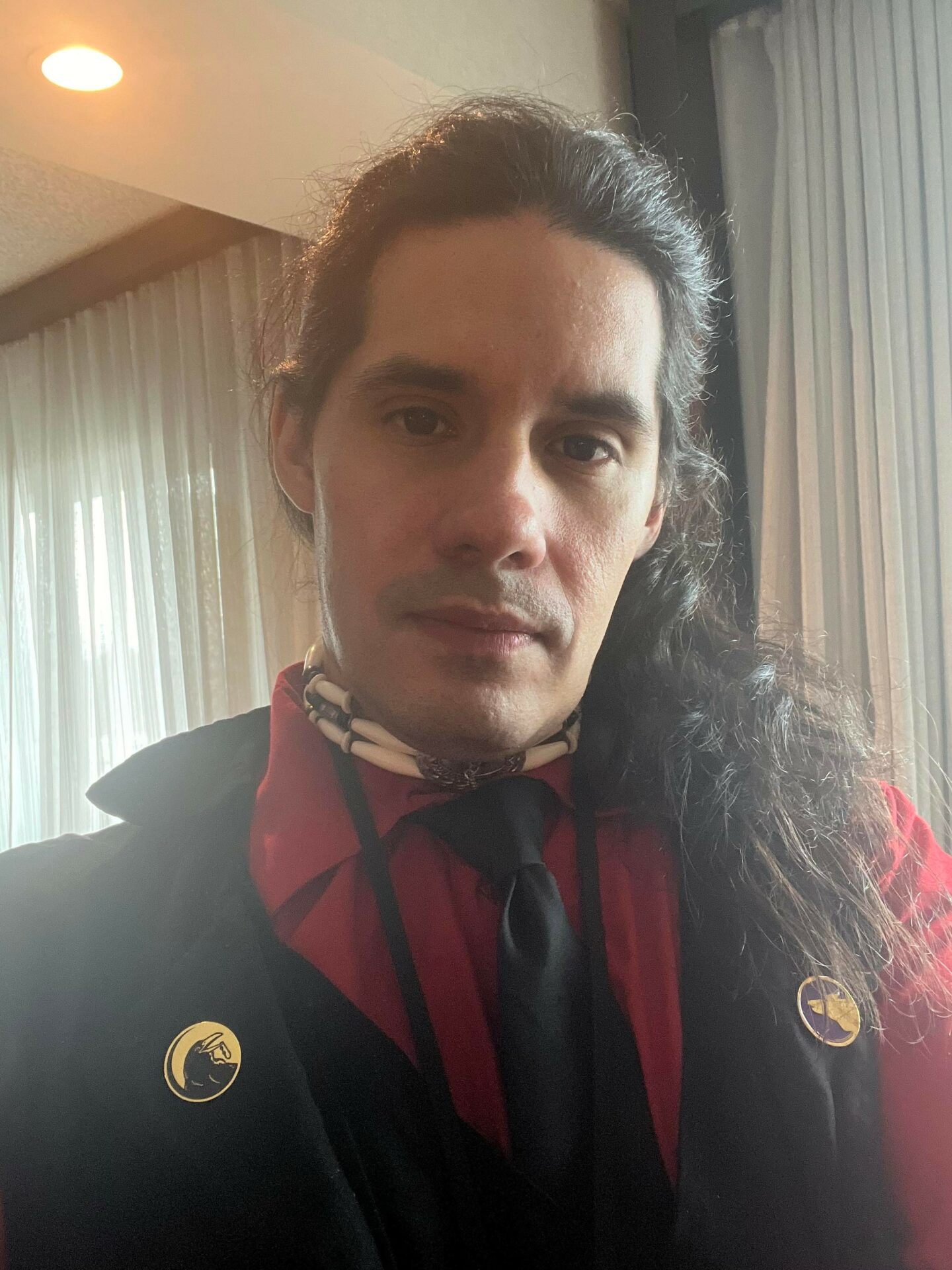We recently connected with Logan Boese and have shared our conversation below.
Logan, we’re thrilled to have you sharing your thoughts and lessons with our community. So, for folks who are at a stage in their life or career where they are trying to be more resilient, can you share where you get your resilience from?
I’d say it ultimately comes from two places: My mother, and the fact that I grew up in a small town in Kansas.
My mother was adopted at a very young age from the Apsaalooke reservation. She grew up as a Native American woman in the seventies, in a town that was less than two-thousand people. She never used these words to describe it, but it was a city in which she was very out of place, and everyone let her know. She learned to be tough, and to never let anyone there get the best of her.
It made her hard, it made her resilient, and it made her tough.
Then, when she had me, I grew up in a town of about ten-thousand people. I was one of only about two Native American children in my entire K-12 experience. I felt out of place. My mother realized that I was obviously not white passing, and, in her own words, “had a big mouth”. So she made certain that I was tough enough to take whatever my class mates or the world could dish out. She was not the most gentle teacher, and the lessons I learned from her have not always served me outside of small-town Kansas, but she did her best to make sure I’d have the ability to keep going, no matter how hard I got knocked down.
Let’s take a small detour – maybe you can share a bit about yourself before we dive back into some of the other questions we had for you?
I’m a Storyteller, first and foremost.
That’s taken many different forms over the years, but it’s what I’ve always come back to, and the skillset I relied on most often.
I used to spend recess gathering kids on the playground, making stories up off the top of my head about a superhero called “Eagleman”. I forgot that for years, honestly. Life was difficult for a long time. I had few friends, mostly relegated to the group of roleplayers I’d found in that small town. I’d grown up as one of the only native people around, and it showed in how I felt, and in how I presented myself. I felt ashamed because I wasn’t successful enough. I felt ashamed because I wasn’t pretty enough. Essentially, I never had a chance to fit in, and I felt ashamed because I wasn’t the “right” kind of person.
It’s the kind of thing you don’t realize how deeply affects you until you look back, and recontextualize incidents.
I never had the kind of confidence that people around me developed. I was convinced every shortcoming I had was my fault. I was even convinced that I could never get any better. Honestly, there were several years where I kind of gave up on ever living out any of my dreams. I’d decided that my best and only purpose was raising my children. To be clear, that’s an important task, and one I WILL NEVER Regret doing! I just wish I had given them a better example of a parent sooner. A person who has given up on life isn’t the best role-model to teach them how to live their own to the fullest. I was focused on surviving in a time when that was really difficult. I worked as a canvasser, an actor, a salesperson, and so many more things as we drove up and down the coast, (because it was cheaper than rent!)
Then, life took a turn during the pandemic.
My family and I had finally managed to put down a few roots, right before the pandemic hit. While we were stuck sheltering in place, the Crow Language Consortium offered their language course online for the first time ever, and I went ahead and took the opportunity. I’d never had the opportunity to learn my tribe’s language and I’d always wanted to be more connected to my community. It was literally life-changing. I’d known the power of words, and language on the interpersonal level, but I’d never realized the importance language had in culture. It might sound silly to say, but it wasn’t something I’d thought about. Specifically, how integral languages are to keeping cultures alive.
It made me realize how important stories were to cultures as well. It also made me realize how important Good representation was. Part of why I never thought of myself as any kind of hero is because I grew up watching American television. People who looked like me weren’t the heroes. They were the plucky comic-relief caricatures. Or they were the wise old mentors who said cryptic things and then disappeared. Or died. I took a good look around, and I realized how I’d always had a choice between Poor Representation, and No Representation. I decided that I wanted to be part of what changed that.
Since then, I’ve been writing and telling stories constantly. I do a lot of work in TTRPG spaces. I’m currently the Lead Story Guide for Coyote and Crow. I’ve also gotten a chance to work with some other big names in that industry, and in the wider world of publishing as well! I also work as an editor, and even a graphic editor on occasion. Something else I I’m proud that I get the opportunity to do is I work as a Cultural Sensititvity Consultant.
The way I see it, there’s a lot of harmful stereotypes that need to be rewritten, and I think Indigenous people need to be the ones holding the pen this time.
There is so much advice out there about all the different skills and qualities folks need to develop in order to succeed in today’s highly competitive environment and often it can feel overwhelming. So, if we had to break it down to just the three that matter most, which three skills or qualities would you focus on?
For myself, it’s been a constant journey of trying to realize that I’m not an imposter – In So Many Ways!
I think the three skills that have been most crucial to me are my adaptiveness, my willingness to look stupid, and my ability to communicate. I’ve worn a lot of hats over the years. I’ve worked as an actor, a canvasser, a haunt-worker, a salesperson, and so much more. It’s given me a lot of life experience that I can draw on, and it’s made me a kinder, more understanding person.
I didn’t know what life would be like outside of my small town, but I knew it would be very different, and that kind of guided me to understand that life would be different no matter where I went. I try to have an open mind. (Key word being try! Many people around me will say that I don’t always succeed. and I can be incredibly stubborn.)
Still, I understand that I’m not always going to be right, and I’m going to screw things up. So I jump into everything I do with both feet, and do my best. I ask many questions, and I just expect that I’m going to make mistakes I’ll have to fix. In my professional dealings, I’ve found that just being honest, up-front and communicative is always better!
And I think that’s my advice to most people just starting their journey: You’re going to screw up. You’re going to make mistakes. You’ll also get better as you go. So be willing to make those mistakes, and be willing to look stupid on occasion. No one really KNOWS what they’re doing. They just more sure in themselves.
I wish I can remember where I heard or saw this quote the first time, but it’s one that’s always comforting to me:
“You can only do your best. …But you can ALWAYS do your Best!”
Thanks so much for sharing all these insights with us today. Before we go, is there a book that’s played in important role in your development?
American Gods is, hands-down, my favourite book of all time.
Neil Gaiman is my role-model, sure, but American Gods has some really timeless quotes and pieces of wisdom.
Among the biggest themes in the book is that Belief shapes the World. “Time and Attention. Better than Lamb’s Blood”. On the intrapersonal level, if you think about something, you give it more power. If you fear something, or worry about something, it gets bigger in your mind. Likewise, if you think about how good you are at something, you can feed that confidence and let it grow! (I’m still working on that myself, honestly.)
On a macro level, that can be applied to life in general, whether or not you believe in manifestation, magic or other esoteric practices. If you have faith in something, you can make it more likely to come true. Sure, you can explain “magic” away in most cases with things like the “red shoes” mentality (IE: A fortune-teller tells you you’ll meet your true love if you wear red shoes, so you wear red shoes every day until you meet your true love,) but I personally think that life is more fun if you just believe in magic and let it exist without explanation.
I also always find myself quoting Mr. Wednesday at another point. “Rigged Games are the easiest to beat.” No matter what you believe, you have to admit that society is definitely a Rigged Game in one regard or another!
Contact Info:
- Website: https://www.loganboese.com/
- Instagram: https://www.instagram.com/loganboese/
- Linkedin: https://www.linkedin.com/in/logan-boese/
- Twitter: https://bsky.app/profile/akiichiwee.bsky.social








